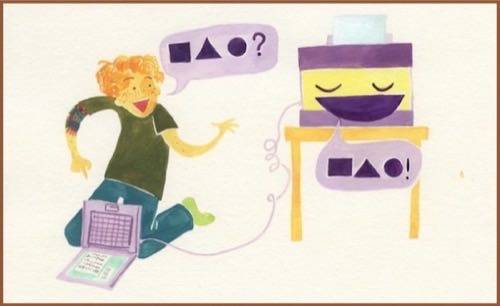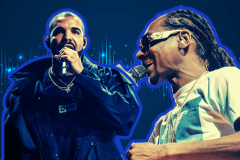
If you want to thrive in the future, it might help to read the manual. Software designer, CEO and 21st century renaissance woman Amber Case has published An Illustrated Dictionary of Cyborg Anthropology. It’s a light-hearted guide to ideas that permeate our lives in networked societies whether we know it or not.
Humans, dogs, bees and even the computers themselves all use information technology to extend themselves. We’re all cyborgs. We may not realize it, but we are.
When we extend our memories by storing them in Gmail or Evernote, when we’re ambiently aware of people far away thanks to their status updates, or when we switch identities by switching accounts, we’re experimenting with a new, extended kind of humanity.

But the more you examine our behaviors, and even those of other species, the more you realize that we have all kinds of customs, languages and codes that extend ourselves. There’s no clear line between these kinds of organic technologies and the ones we plug into the wall at night to “feed them,” as Case writes in her introduction.
Case is a seasoned guide to this thick forest of ideas. Not only is she a software designer and CEO of pioneering mobile location platform Geoloqi, she’s an anthropologist by training.
Case describes our relationships with technology – both the digital and analog kinds – as a kind of symbiosis between life, society, objects and information. And the more we study these relationships, the more prepared we are for their growth and change, which is constantly accellerating.

The Illustrated Dictionary of Cyborg Anthropology reads like Case’s report from the field. She’s been logging concepts that illuminate aspects of our cyborg relationships, and she’s reporting back to us on each of them with their definitions, significance and relevant source materials.
Each entry is no longer than one two-column page, and they’re accompanied by whimsical full-page illustrations by Maggie Nichols. The 111 pages are not densely packed; they’re quick references to massive ideas, and you can gaze into the warm illustrations as you think about them.

Terms in the dictionary range from computer science notions like machine learning and natural language processing to social constructions like celebrity as cyborg and city as software to trippy mental states lke flow and synesthesia.
Entries are listed in alphabetical order, so the text serves more as a reference book than an exploration. But the lightness of Case’s treatments of the subjects lends itself to skipping around, and the pages themselves and the additional reading section at the end provide jumping-off points for deeper diving.
The book is available for digital download from cyborganthropology.com/store for $17. You can pre-order a print (analog) copy for $35, which will be available in October.
Disclosure: Amber Case is a person who I know and like very much.





















